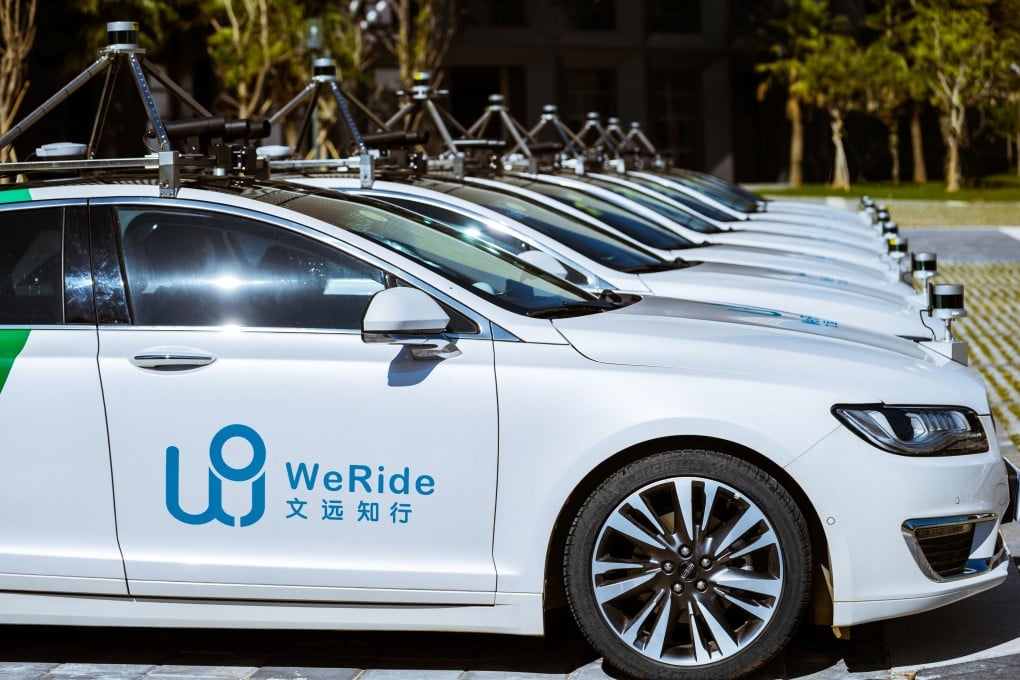Chinese self-driving start-up WeRide forms robotaxi venture as country strives to catch US peers
- China and the US have taken the lead in the development of Level 4 autonomous driving technologies, with Alphabet's Waymo in front

Chinese smart automobility start-up WeRide last week announced it had formed a joint venture with a traditional taxi company in Guangzhou, revving up its autonomous driving ambitions in China as the industry strives to catch up with US peers.
Launched by WeRide and its strategic partner Baiyun Taxi Group, the largest taxi company in south China under Guangzhou Public Transport Group, and SCI (Guangzhou) Group, WeRide RoboTaxi will roll out an autonomous cab service using e-hailing, the company said.
Founded in Silicon Valley in 2017, WeRide has focused on research and development (R&D) of Level 4 autonomous driving technologies, which, according to standards defined by the Society of Automotive Engineers (SAE), means that the car can handle most driving situations independently although a human driver can still request control.
“With autonomous driving [technology], realistically speaking, the gap between the US and China is about 1 to 2 years and the main factor that restricts [narrowing] the gap is the formulation of policies and regulations,” Tony Han Xu, co-founder and chief executive of Guangzhou-headquartered WeRide, told the Post during the Global Mobile internet Conference (GMIC) in the city last month.
China wants smart vehicles to account for half of all new cars sold at home by 2020, according to a road map from the country’s top economic planner. By 2025, the country expects a fully-formed ecosystem around smart vehicles and highly automated cars to take up 15 per cent of sales.